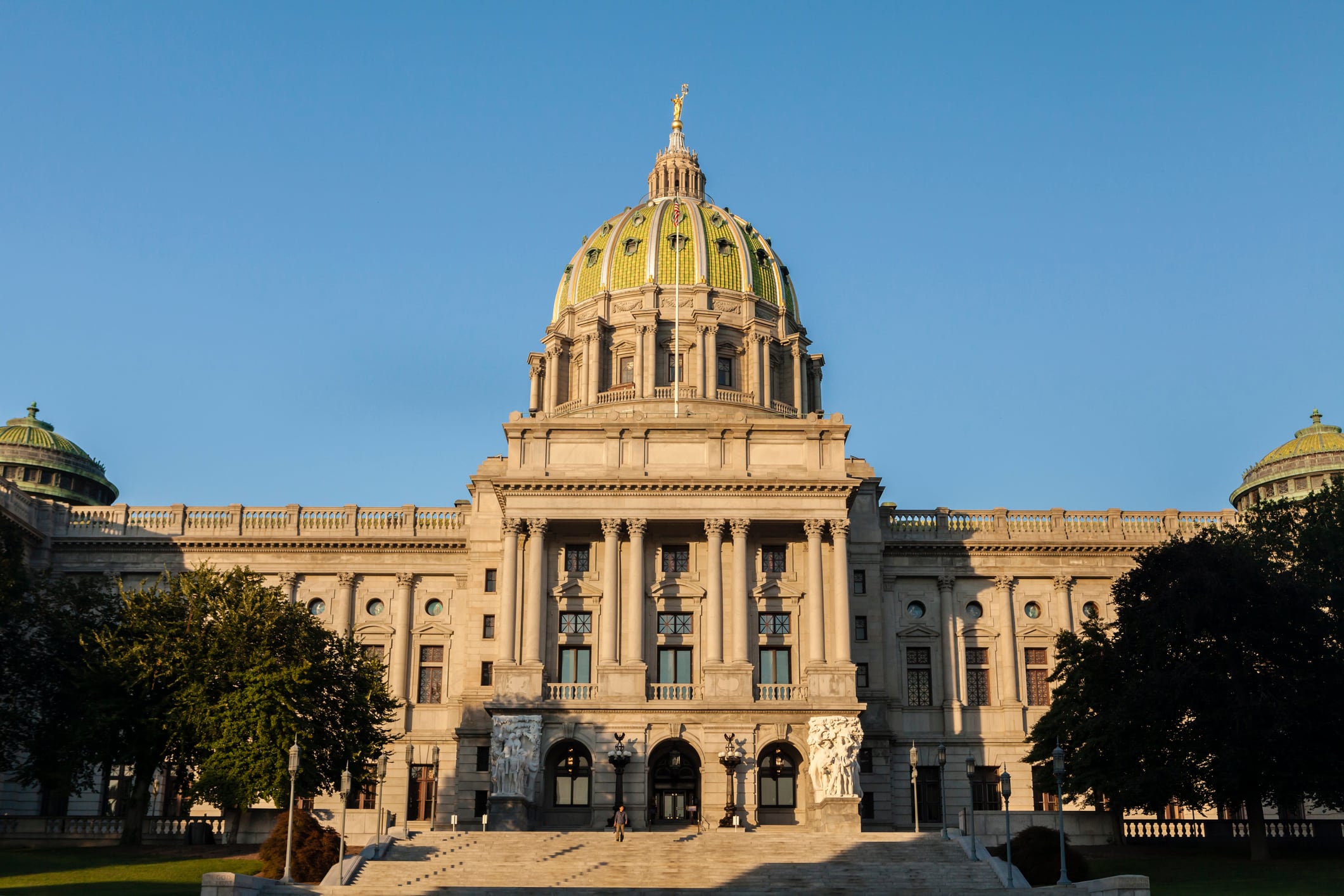Pennsylvania’s General Assembly has approved a $45.8 billion budget that will increase spending on education by $850 million, a historic school funding increase.
In the budget deal passed by lawmakers Friday, basic education funding for school districts — the major source of state K-12 aid — will increase by $525 million. “Level Up” funding, which is for the 100 poorest school districts in the state including Philadelphia, will go up by $225 million, and there will be a $100 million increase for special education. Combined funding for basic education and Level Up districts will increase from $7.1 billion to $7.8 billion, or about 8%.
Legislative leaders hailed the 2022-23 budget as a major commitment to schools, and Democratic Gov. Tom Wolf’s signed it Friday evening. Wolf had initially proposed increasing education aid by nearly twice as much as what was finally adopted.
“This is a comprehensive budget that puts the needs of people before the needs of government,” said Republican Rep. Stan Saylor, the chairman of the House Appropriations Committee.
But advocates said that while the deal will help many districts and students, the aid increase will do little to correct the state’s systemic inequity in education funding, now the subject of a landmark lawsuit. Some observers also pointed out that the 8% increase for education will barely keep pace with record inflation.
As the state’s largest district, Philadelphia will receive about $93 million of the additional basic education funding, $84 million of the Level Up increase, and $12.6 million of the special education hike.
New Philadelphia Superintendent Tony Watlington Sr. praised Wolf and lawmakers, and called the budget “a step in the right direction.” But even though the boost in state funding for city schools (roughly $200 million in total) will be substantial, the district’s chief financial officer, Uri Monson, said it will be a smaller increase than what district officials anticipated.
That gap between expectations and the budget deal won’t have a huge effect on the fiscal 2023 budget, but will require adjustments in the district’s five-year plan, he said, primarily because the district will eventually use up federal COVID relief. Monson said he was especially disappointed that lawmakers have chosen to put more than $2 billion into the state’s rainy day fund for budget emergencies.
“It may not be raining in the fiscal sense, but it’s raining now because of all that districts are doing to help students recover from the pandemic,” he said. “It’s disappointing that they put three times as much money into the future as they did for the current needs of students.”
For Philadelphia, that may mean cutting back on extra counselors and other staff brought on in the wake of the pandemic, he said.
From a statewide perspective, the deal highlights but does not resolve the fundamental unfairness of the current K-12 funding system, said Maura McInerney, legal director at the Education Law Center, which is helping to represent the plaintiff districts in an ongoing court case where the legality of that system is being challenged.
“The significant education funding increase in this budget agreement shows that many in Harrisburg recognize the depth of the hole our legislative leaders have dug for our students,” McInerney said. “But it is not sufficient to meet the state legislature’s constitutional responsibility to fix our inadequate, two-tiered school funding system.”
Superintendents and other educators detailed vast, unmet needs in low-income districts during a four-month trial about the state funding system in Commonwealth Court that ended in March. However, it could be some time before Judge Renée Jubelirer issues a ruling, which the losing side will likely appeal.
In that case, Monson testified that as the state’s largest district, Philadelphia receives a huge chunk of overall aid, but still receives a relatively low amount from the state on a per-student basis.
The city ranked near the bottom among the state’s 500 school districts in the amount it spends per “weighted” student, a formula that accounts for not just overall enrollment but the concentration of low-income and high-needs students, Monson said.
Philadelphia, with a poverty rate of 24%, is the poorest big city in America.
Friday’s budget deal also includes a $125 million or 45% increase to the cap for a state program that provides tax breaks to corporations that underwrite scholarships for students to attend private schools. State Republican lawmakers are key backers of these Educational Improvement Tax Credit scholarships, but critics call them vouchers in disguise.
The budget does not include a provision sponsored by two Democratic legislators from Philadelphia, Sen. Vince Hughes and Rep. Liz Fiedler, that would have earmarked $800 million for upgrading outdated school facilities.
Legislators also rejected changes in the charter school reimbursement formula that would have saved the Philadelphia district more than $145 million.
This story has been updated.
Dale Mezzacappa is a senior writer for Chalkbeat Philadelphia, where she covers K-12 schools and early childhood education in Philadelphia. Contact Dale at dmezzacappa@chalkbeat.org.






